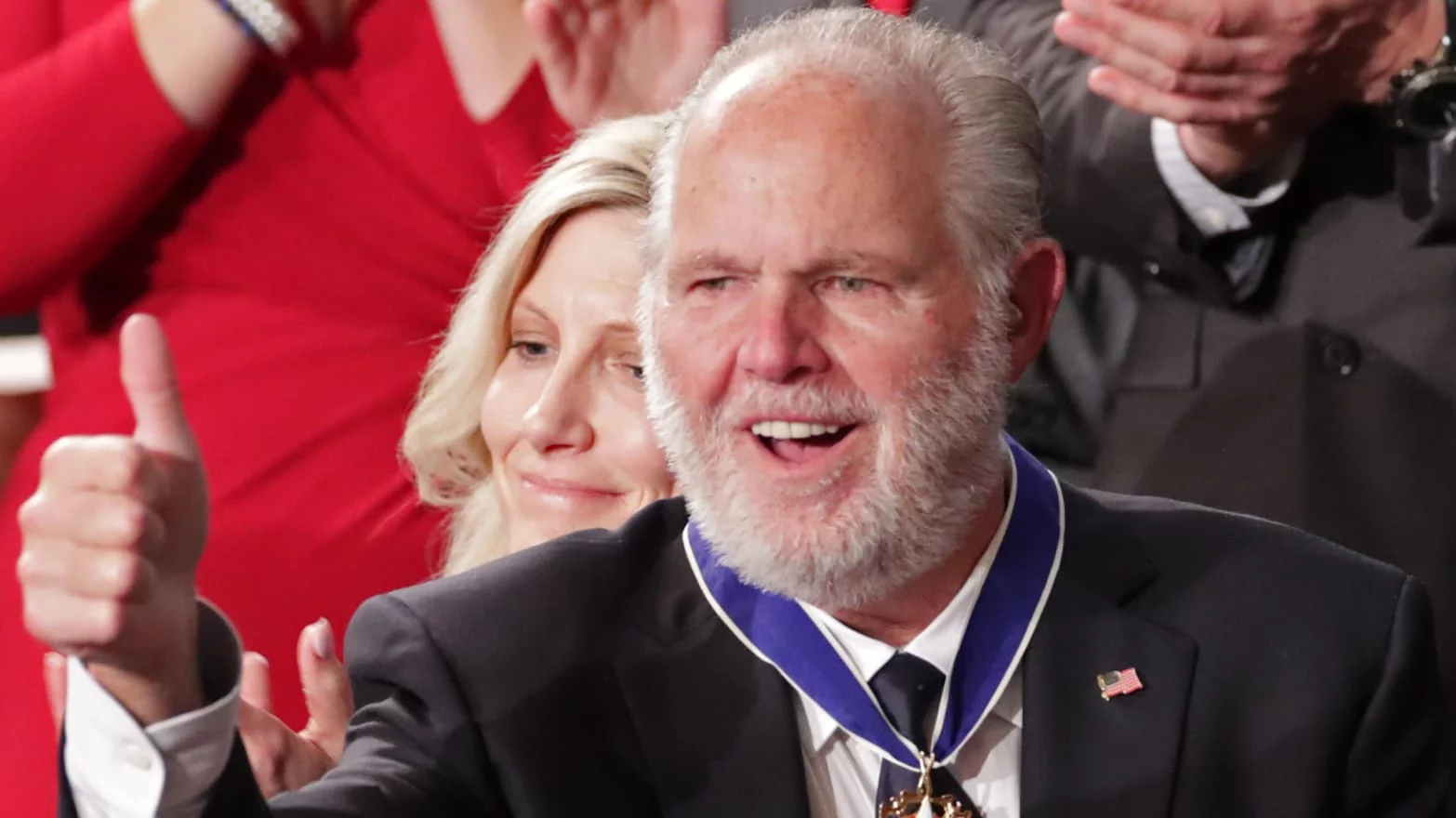Written by: Jake Love, staff writer
DAYTON, Tenn.—In February, at President Donald Trump’s State of the Union address, Rush Limbaugh looked on from the audience while sitting next to Melania Trump, just a handful of days after announcing his diagnosis of stage 4 lung cancer.
At 69, Limbaugh is one of the most popular talk radio personalities in the world, helming the nationally-syndicated conservative political talk show The Rush Limbaugh Show. With a career that spans five decades, few have done as much as Limbaugh to reinvigorate talk radio as a relevant medium.
Midway through the address, President Trump called out to Limbaugh from the podium, announcing that Limbaugh was being awarded the Presidential Medal of Freedom, the highest possible civilian honor.
As Limbaugh received a partial standing ovation, he remained in his seat for a moment, appearing overwhelmed with joy. When he finally rose, the First Lady turned and gave Limbaugh the medal.
Over the course of Limbaugh’s career, his audience included over 25 million Americans, causing him to have large influence on conservative, Republican and American politics, and he still has that same influence today.
How did Limbaugh enter the public eye, and how did he rise to such heights?
Limbaugh was born on January 12, 1951, in Cape Girardeau, Missouri. Although he came from a family of lawyers, Limbaugh developed an early interest in radio, getting his first talk radio job at 16 under the airname “Rusty Sharpe.”
After high school, Limbaugh briefly attended Southeast Missouri State University, but dropped out at the end of his second semester after his preoccupation with radio caused him to underperform academically.
Throughout the 1970s and ‘80s, Limbaugh worked a number of odd radio jobs before starting The Rush Limbaugh Show in 1988, a talk show that focuses on politics from Limbaugh’s conservative viewpoint. The show still airs today.
Over the years, Limbaugh gained a significant following as the result of his fiery personality and biting criticisms.
He became known for his animated style coupled with his passionate political opinions, which made him a polarizing figure. He was also known as a blue-collar product of the working class, choosing to call himself a “conservative everyman” rather than a journalist or commentator.
Today, his fanbase includes millions of people, but he is disliked by just as many.
Limbaugh has also published seven books during his career, two of which—The Way Things Ought to Be (1992) and See, I Told You So (1993)—were on the New York Times bestseller list.
Limbaugh is famous for his skepticism of what he sees as the Washington, D.C. establishment. A large part of his persona is the distrust of top politicians, most often Democrats, who he sees as members of the upper rung of society that engineer ill will upon the everyday American; as a result, his most common targets are Democrat politicians and left-leaning media.
According to friends, however, Limbaugh’s fiery persona doesn’t accurately reflect his humble personality. Limbaugh is involved with charity fundraising, and he also normally compliments the insight of people who call into the show, frequently saying of their musings, “I hadn’t thought about that before.”
But Limbaugh has never been one to withhold his opinion.
He attracted controversy in 2008, shortly after former two-term Democrat President Barack Obama won his first presidential election.
While most celebrated the election of the country’s first African-American president, Limbaugh, out of his disdain for liberalism, said of the President, “I hope Obama fails.”
At that time, Limbaugh was part of the minority who was unenthusiastic about the new progressive Commander in Chief.
This wasn’t the first, nor last, time Limbaugh buried himself in controversy.
In 2012, he mocked right-to-abortion activist and Georgetown Law student Sandra Fluke by calling her a “slut” and a “prostitute.”
He has also been critical of the orientation of society towards the concept of sexual consent. He criticized a public relations push at Ohio State University to encourage students to value sexual consent, saying, “How many of you guys… have learned that ‘no’ means ‘yes’ if you know how to spot it?”
Limbaugh has also compared NFL games to, “Game[s] between bloods and crips without any weapons,” and said that “The NAACP should have riot rehearsal. They should get a liquor store and practice robberies.”
So the question isn’t whether Limbaugh is politically correct, but whether his political incorrectness is a vice or virtue.
To some, he’s the free-speaking hero of the working class; to others, he’s a hateful bigot. A misunderstood genius to some, an unclassy extremist to others.
Perhaps conservative political advisor Roger Stone’s first rule for political success is befitting of Limbaugh: “It’s better to be infamous than to never be famous at all.”
Perhaps where one falls on the spectrum of political opinion determines whether they think Limbaugh deserves to receive the same honor—the Presidential Medal of Freedom—that was also given to Martin Luther King Jr., Rosa Parks and Walter Cronkite.
And perhaps that spectrum also influences one’s answer to this question: is Rush Limbaugh an American hero, or an American villain?
Nonetheless, Limbaugh’s continued influence on conservative, Republican and American politics is very present today, influencing over 30 million now, and his influence will probably last a long time.
Jake Love is a staff writer for the Triangle. He is an English major with an emphasis on creative writing and is from Soddy-Daisy, Tenn. He enjoys reading and consuming large amounts of caffeine.




